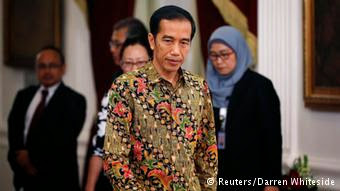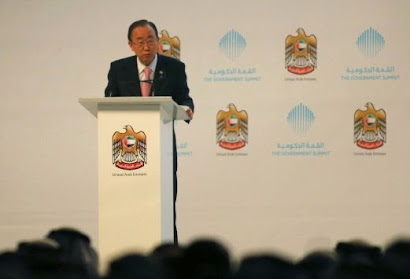The Jakarta Post , Jakarta , | Mon, 03/10/2008 1:21 AM
The government will need to work extra hard to lure foreign visitors with this year's ambitious Visit Indonesia Year campaign, in the light of health and hygiene issues mentioned in a recent report.
The report, issued March 4 by Switzerland-based World Economic Forum (WEF), cited Indonesia's poor health and hygiene conditions and inadequate infrastructure as key disadvantages in attracting foreign visitors.
WEF ranked Indonesia 80th among 130 countries in its Travel and Competitiveness Index 2008, lower than neighbors Singapore, Malaysia and Thailand.
Last year, Indonesia ranked 60th among 124 countries studied.
Indonesia's health facilities and hygiene received poor scores because of the country's low number of physicians (per capita), inadequate hospital beds, and poor access to improved sanitation and drinking water.
As Southeast Asia's largest economy, Indonesia also received low scores for quality of tourism infrastructure, comprising hotel rooms, presence of major car rental firms and automatic teller machines accepting Visa cards.
These problems were the main reasons for Indonesia's fall in ranking, WEF says.
Indonesia's edge in the competitiveness index related to competitive prices for goods and services, prioritization of travel and tourism spots, and the availability of qualified labor, the report said.
The index was arranged based on data from the International Air Transport Association (IATA), the World Tourism Organization (UNWTO), the World Trade Organization (WTO), the World Travel & Tourism Council (WTTC) and the WEF's own survey on qualitative institutional and business environment issues.
The index ranked Switzerland, Austria, Germany, Australia and Spain as the top five countries in the study (respectively).
As organizers of the high profile annual international business forum in Davos, Switzerland, the WEF is an independent international non-profit organization based in Geneva, Switzerland.
The forum was first established in January 1971, when a group of European business leaders met under the patronage of the European Commission and European industrial associations.
State Ministry of Culture and Tourism marketing director general Sapta Nirwandar told The Jakarta Post recently the government was in the process of improving tourism infrastructure, and making easier entry procedures for tourists.
"We are still in the process of fixing everything. We are now increasing promotions and cultural events overseas, simplifying visa procedures and improving the quality of service and human resource professionalism," he said.
Last year, some 5.51 million foreign tourists visited the world's largest archipelago, up from 4.87 million in 2006, according to data from to the Central Statistics Agency.
Singapore accounted for the largest number of visitors, with 1.46 million, followed by Malaysia (941,202), Japan (593,784), Australia (313,881), South Korea (423,098), China (335,172), Europe (528,171), and the United States (154,846), the agency reported.
"We have many interesting places and cultures, but many of them don't have good infrastructure or facilities to accommodate visitors' needs," said Thamrin Bhiwana Bachri, an executive at the State Ministry for Culture and Tourism.
"The facilities will include convenient hotels, clean public toilets, well-managed airports, and easy access to tourist attractions," he said.
For 2008, Indonesia has targeted to net seven million foreign visitors under the Visit Indonesia Year campaign funded by the State Ministry of Culture and Tourism.
Sapta said, however, the figure was still far less than Singapore or Malaysia, which were targeting to this year lure some 10.2 million and 20.7 million foreign visitors respectively. (rff)
The 2008 Travel & Tourism Competitiveness Index
Rank Country Score (1-7 scale) 1 Switzerland 5.63 2 Austria 5.43 3 Germany 5.41 4 Australia 5.34 5 Spain 5.30 6 United Kingdom 5.28 7 United States 5.28 8 Sweden 5.27 9 Canada 5.26 10 France 5.23 16 Singapore 5.06 32 Malaysia 4.63 42 Thailand 4.37 80 Indonesia 3.70 81 Philippines 3.70 96 Vietnam 3.57 112 Cambodia 3.32
Indonesia's travel & tourism indicators (2007)
GDP (US$ millions) 10,167 Employment (1,000 jobs) 1,981
(Source: The Travel & Tourism Competitiveness Report 2008; World Economic Forum)








